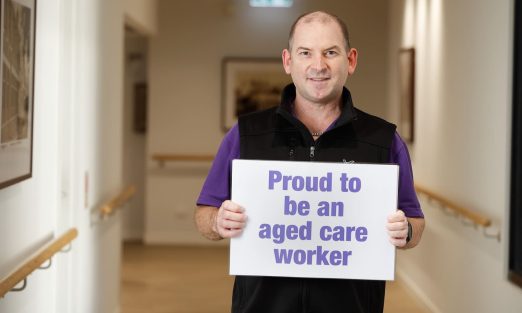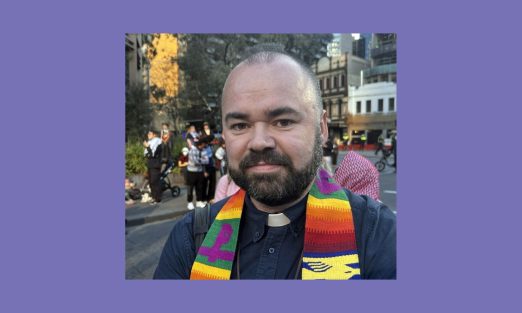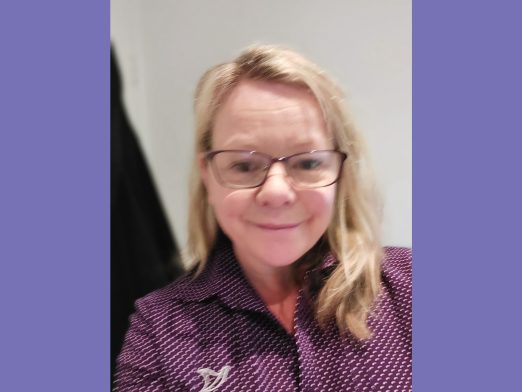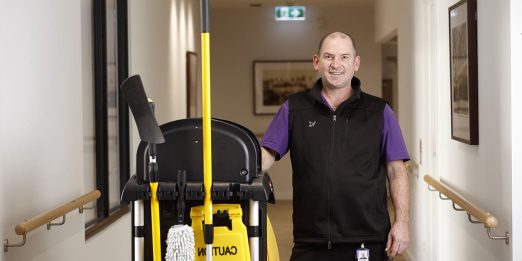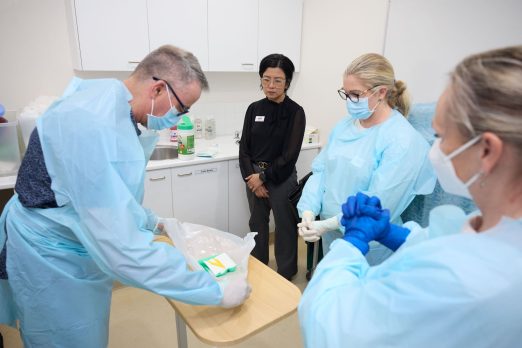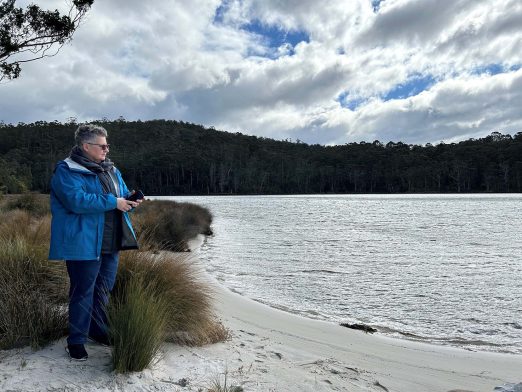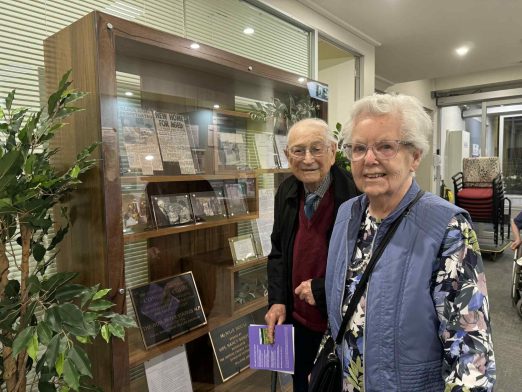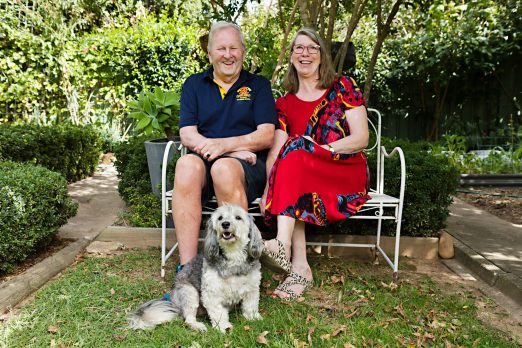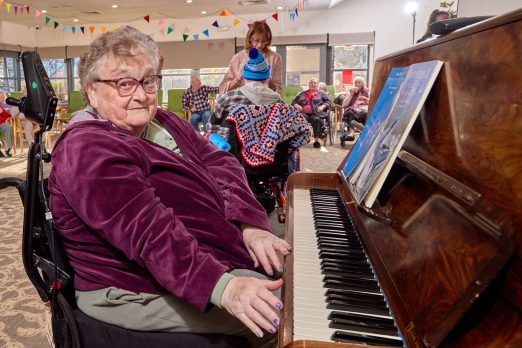News
Feeling sew good!
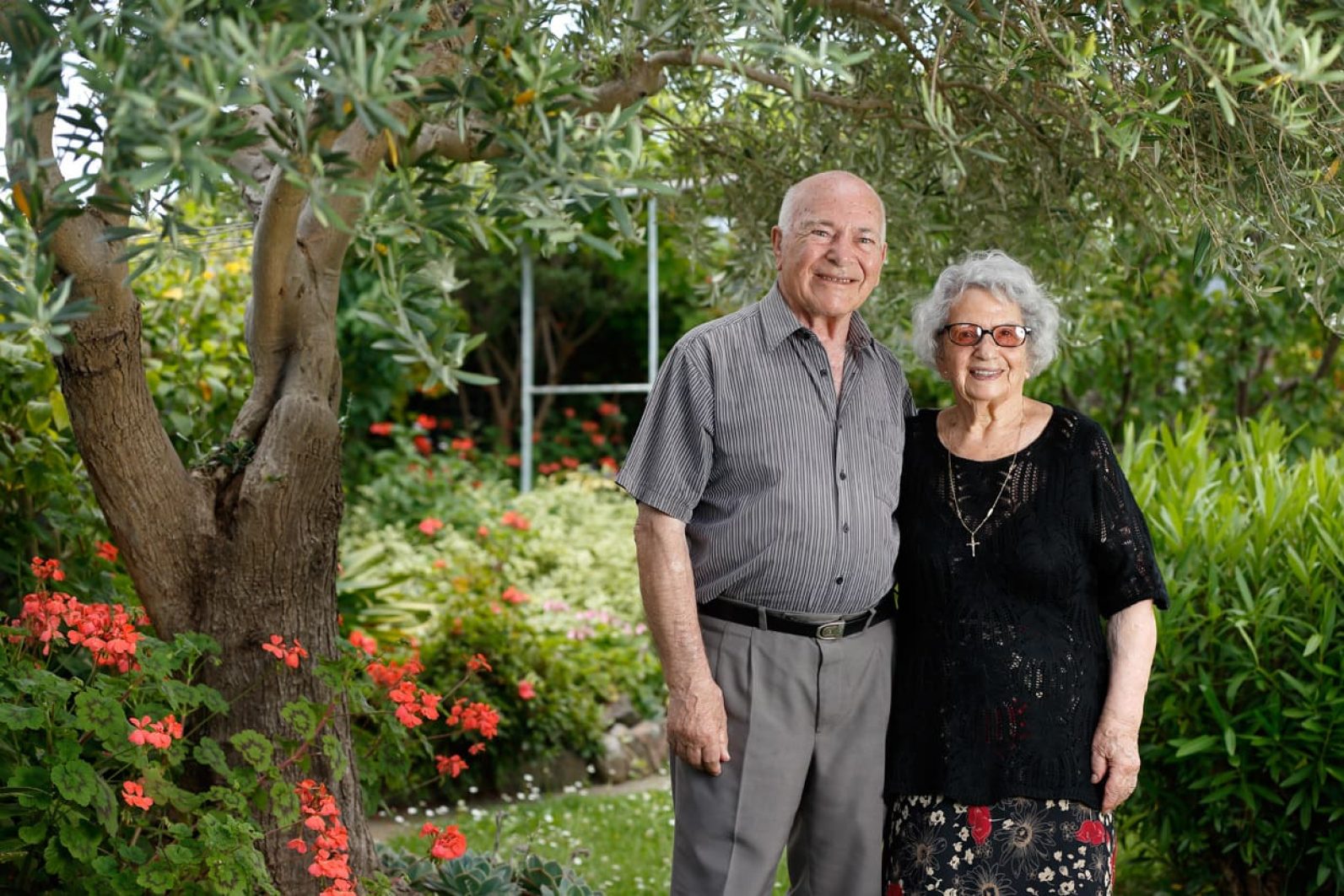
Home and Community
Retired Preston tailor Alfredo Guzzi is loving life now that he’s got his mobility back.
The 90-year-old Italian immigrant drives to the shops, potters around the garden and enjoys reading the newspaper, playing solitaire and watching television with his wife, Carmela, 88.
And the twinkle is firmly back in his eye, thanks to the services he received on his eight week Short Term Restorative Care (STRC) program through Uniting AgeWell.
The aim of the STRC program is to keep clients as well and as healthy as possible at home and out of hospital while they wait for their home care package.
And it works! Alfredo is delighted with the range of services he received – from gardening to equipment to improve his independence. A new electric lift recliner chair means he can stand up with less pain in his knees, and a walking stick has improved his confidence and reduces his risk of falls. A sock-donning aid helps him independently dress in the morning and a personal alarm provides peace of mind.
His mobility levels are up and his pain levels down through physiotherapy, occupational therapy and podiatry services including getting a new pair of house slippers with grip to prevent falls.
He’s so impressed with the level of support and service that Uniting AgeWell
provides, that he’s transitioning over to a level two Home Care Package through the organisation.
“They’re so helpful and kind – why would I go with anyone else?” he asks.
Why indeed?
So what is the STRC package and how can it help you?
Uniting AgeWell is one of the bigger providers of this program in the Melbourne metropolitan area with hopes of expanding the program into the rest of Victoria and Tasmania.
There are three main components to the STRC program and each program is designed specifically to meet the client’s goals:
• Therapy: multi-disciplinary teams provide assessment, education and treatment. These commonly include physiotherapy, occupational therapy, speech pathology, podiatry, dietetics, and nursing (continence, oedema, diabetes management)
• Other services: these may include personal and domestic care assistance, shopping, transport to medical appointments and gardening
• Assessment, and prescription of equipment and minor home modifications: such as shower chairs, grab rails, personal care and walking aids. These cater for both the physical and cognitive needs of the clients. Assistive technology includes provision of talking calendars, personal alarms with GPS tracking, tab timers and more.
Goal setting & 1:1 support
The program aims to meet the client’s goals to improve or maintain their functional activities and independence whilst living in their home. And the client advisor, in partnership with the client, develops meaningful, achievable and measurable short-term goals which are reviewed regularly with the client throughout the program
Julie Anderson, Uniting AgeWell Operations Manager says, “Clients tell us what goals they would like to achieve, and we work with them to achieve them,” Julie says. “Clients are empowered to identify what physical, emotional and cognitive needs they want addressed.”
“Because it is such an intensive program, our care advisors have a very involved day-to-day role with clients. They actively listen to what is important to the clients and talk to them often. Feedback from our clients is that they love knowing that we care and are happy to do things with them,” Julie says.
Julie says one of the huge strengths of the program is that Uniting AgeWell does all the facilitating and organising to make the services happen – and in the comfort of the client’s home.
Julie says the client is always the decision-maker. “Even when it comes to selecting equipment to improve independence and wellness, we give them advice and take them to medical supply showrooms where they can trial the equipment such as bathroom aids or hospital beds. At the end of the day it’s their decision, guided by the health professionals.”
The Commonwealth Government requires STRC providers to complete the Modified Barthel Index to assess clients at the starting and ending points of the program. This tool measures personal functioning and self-care tasks and is scored out of 100. Julie says another benefit of being on the program is that it helps a client define what they need from a home care package. “They know what works and can tweak their home care packages to offer more of the same,” she says.
“Whole of the person” help
Uniting AgeWell Occupational Therapist Jen Humphrey says the program caters for the “whole of the person” – and takes self-esteem, dignity and connectivity into account.
Jen conducts comprehensive home assessments in western metropolitan Melbourne to assess clients’ needs and takes great personal joy in working with them to offer solutions for not only physical wellness and safety but also for their social and emotional needs.
Jen said she was assessing a client for bathroom aids when the client mentioned she couldn’t walk any distance and missed being able to chat to her neighbours. So Jen arranged for the STRC program to provide a manual wheelchair for her – and now the client’s daughter is able to take her down the street to connect with her neighbours.
Jen says there is a range of equipment designed to be used by those with Parkinson’s disease – including special mugs to reduce hand tremor and easy-to-grip, weighted cutlery, and dining room chairs that rotate making it easier to get up.
“This means the person can join their family at meal times, and not have to worry about asking for assistance, or being embarrassed about spilling drink or food. It’s the little things that make such a big difference,” Jen says.
This also applies to those with cognitive impairment. “There is a wonderful personal alarm which has a built-in GPS, which means that families are able to locate where a loved one with dementia is if they wander and have a fall,” Jen explains. “This gives peace of mind to both the person with dementia and their family.”
In addition to the ever increasing range and accessible of assistive devises and equipment, client education and training in areas such as relaxation and energy conservation allow clients to enjoy life and maintain their independence.
